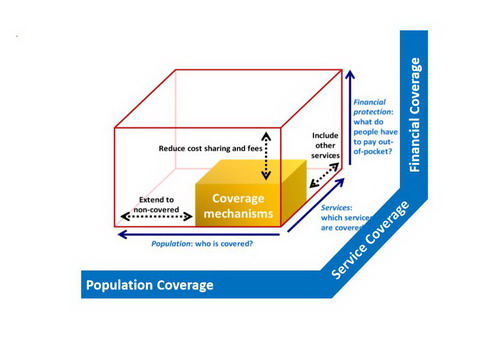 Universal health coverage means that all people and communities can use the promotive, preventive, curative, rehabilitative and palliative health services they need, of sufficient quality to be effective, while also ensuring that the use of these services does not expose the user to financial hardship. For countries to achieve universal health coverage they require a strong, efficient, well-run health system that meets priority health needs through people-centred integrated care and a system for financing health services so people do not suffer financial hardship when using them.
Universal health coverage means that all people and communities can use the promotive, preventive, curative, rehabilitative and palliative health services they need, of sufficient quality to be effective, while also ensuring that the use of these services does not expose the user to financial hardship. For countries to achieve universal health coverage they require a strong, efficient, well-run health system that meets priority health needs through people-centred integrated care and a system for financing health services so people do not suffer financial hardship when using them.
Universal health coverage has a direct impact on a population’s health. Access to health services enables people to be more productive and active contributors to their families and communities. It also ensures that children can go to school and learn. At the same time, financial risk protection prevents people from being pushed into poverty when they have to pay for health services out of their own pockets. Universal health coverage is thus a critical component of sustainable development and poverty reduction, and a key element of any effort to reduce social inequities. Universal coverage is the hallmark of a government’s commitment to improve the wellbeing of all its citizens.
Universal coverage is firmly based on the WHO Constitution of 1948 declaring health a fundamental human right and on the Health for All agenda set by the Alma-Ata declaration in 1978. Equity is paramount.
Developing a universal health coverage priority benefit package
Framework for action on advancing universal health coverage in the Eastern Mediterranean Region


